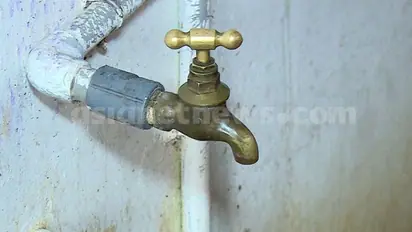Kerala: Rs 2511 crore contract with French MNC for drinking water supply in Kochi in final stage amid protests

Synopsis
The Kerala government has opted to award the contract to the French company Suez Projects Private Limited, paying 21% more than the initial estimate. This decision aligns with the central government's new water policy, aiming to reduce leakage and ensure a clean water supply.
Kochi: The Kerala Water Authority's (KWA) agreement with a French MNC for drinking water in Kochi city has reached its final stage. Suez India, the Indian arm of Suez Group won the Rs 2,511-crore project jointly implemented by the Asian Development Bank, Union government and KWA. In November 2023, the Asian Development Bank (ADB) sanctioned a $170 million (Rs 1,416 crore) loan to aid in upgrading water supply services in Kochi.
This ADB loan will cover 70% of the total cost, while the remaining 30% will be funded by the state government. The concern revolves around potential changes in price and public water supply during the replacement of the current drinking water pipes. The objective of this project is to ensure a full-time water supply.
To supply drinking water to Kochi, where the sea and backwaters flow, water from the Periyar River at Aluva and the Muvattupuzha River at Pazhur must be transported through a network of pipes. This involves water traveling from the main pipes through several kilometers of small and large underground pipes to reach individual households. The Water Authority is responsible for this infrastructure.
However, the state government believes that the French company Suez Projects Private Limited should undertake this project. This decision aligns with the central government's new water policy, aiming to reduce current leakage and ensure a clean water supply. The total expenditure for the project is Rs 2,511 crores, with Rs 750 crores being the state government's share. Despite this, the latest decision is to award the contract to Suez Projects at 21 percent above the estimated cost. This recommendation, made by a high-ranking committee led by the Principal Secretary of the Water Resources Department, will become final if the cabinet approves it. This decision raises several questions regarding the planning process.
Who will determine the billing? How much will the increase be? What are the criteria? Will the policy become secondary to Below Poverty Line (BPL) connections and public taps in a scheme that also aims to increase revenue? Significant changes are required for the existing pump houses and pipes. When new water meters are added, will the cost be borne by the common man? Permission from various government departments is required to change the pipes in the city. Who will be responsible for delays in the project? Will the court have jurisdiction overseas? Even pro-government service organizations of the Water Authority have sought answers to all these questions, but there are no clear responses.
The project in Kochi City is estimated to take seven years to complete, with the state government bearing the maintenance costs for the subsequent three years. Concerns about transparency arise as mistrust builds around the detailed project report. Despite the ongoing Amrit and Jal Jeevan Mission projects, which also cost crores of rupees, the state has embarked on yet another expensive initiative. Drinking water protection committees in Kochi are protesting, questioning whether the commission is the true target, as the government insists on proceeding with the project despite opposition.
Stay updated with the Breaking News Today and Latest News from across India and around the world. Get real-time updates, in-depth analysis, and comprehensive coverage of India News, World News, Indian Defence News, Kerala News, and Karnataka News. From politics to current affairs, follow every major story as it unfolds. Download the Asianet News Official App to stay informed anytime, anywhere.